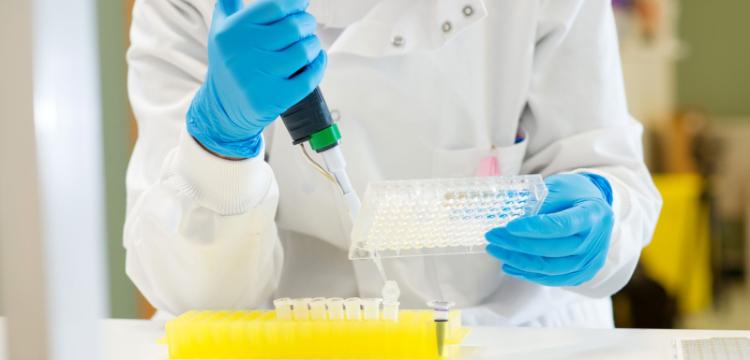Groundbreaking Stem Cell Discovery Sheds Light on Cause of Developmental Disorders
New research led by Queen’s University Belfast & the Patrick G Johnston Centre for Cancer Research has identified that the gene Spic plays a central role in regulating stem cell identity during early embryonic development.

This groundbreaking discovery sheds light on how these mechanisms might be disrupted in certain developmental and metabolic disorders including vitamin-B related conditions.
The findings could open new avenues for regenerative medicine and potential therapeutic interventions in patients with rare genetic conditions, including newborns affected by conditions like homocystinuria.
The research has been published in the journal Science Advances.
The study was led by Queen’s University in collaboration with Amsterdam University Medical Center, University of Freiburg, Radboud University Nijmegen Medical Centre and the Princess Maxima Centre for Pediatric Oncology, Utrecht, Netherlands.
Stem cells have the remarkable ability to self-renew and differentiate into specialised cells, maintaining tissues in adults and embryos. Embryonic stem cells (ESCs) represent the earliest type of stem cells and can give rise to all adult cell types.
The balance of self-renewal and differentiation in stem cells is controlled by specific chemical modifications of DNA and its associated proteins, known as epigenetic regulation. Imbalances in these mechanisms can lead to diseases like cancer and developmental disorders.
Dr Yaser Atlasi, Principal Investigator on the research and Illuminate Vice Chancellor’s Fellow at the Patrick G Johnston Centre for Cancer Research at Queen’s University Belfast, explains: “We made an unexpected discovery that Spic, a gene without a known function in stem cells, plays a key role in linking cellular metabolic to epigenetic regulation, thereby governing stem cell identity in early development.
“This breakthrough has strong implications in regenerative medicine, and we hope it will lead to new therapeutic approaches targeting patients affected by certain developmental and metabolic disorders, such as vitamin-B related conditions.”
The study also reveals that the ERK-SPIC signalling axis controls one-carbon metabolism, a central metabolic pathway in our cells, and significantly increases the levels of H3R17me2, a key histone mark involved in control of stem cell identity.
The next step of the research will further investigate this signaling axis and how it controls modifications and differentiation in stem cells.
The research was supported in part by a Medical Research Council New Investigator Research Grant.
